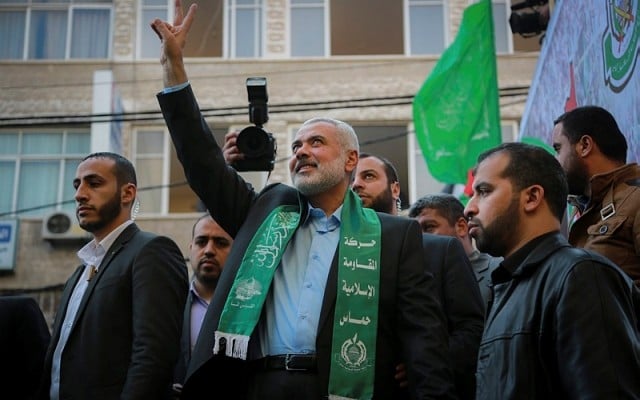The British-based media giant’s reporters called him ‘moderate’ while ignoring his active leadership of a terrorist organization.
By Batya Jerenberg, World Israel News
The BBC is under fire after the media outlet declined to label Ismail Haniyeh as a terrorist when discussing the Hamas leader after his Tuesday assassination in Tehran.
“Despite his tough rhetoric, he was generally seen by analysts as moderate and pragmatic, compared to the more hardline Gaza-based leaders,” was a line used in more than one of its media programs.
“Ismail Haniyeh was a dedicated antisemite and the leader of a proscribed, genocidal terrorist group which on 7 October perpetrated the deadliest massacre of Jews since the Holocaust ‘To describe such an individual as ‘moderate and pragmatic’ is grotesque and an absolute disgrace,” Labour MP Mike Tapp told The Sun.
On the other side of the political aisle, Conservative Shadow Business and Trade Minister Greg Smith blasted, “In what reality can the head of an organization responsible for so much death, sexual violence and hate be called moderate? Hamas want to wipe Israel from the face of the earth and kill Jewish people simply because they are Jewish, yet the BBC think they’re ‘pragmatic.’”
BBC articles also made the point that he had been “overseeing talks on a new ceasefire and hostage release deal” regarding the ongoing war his terror organization sparked in the Gaza Strip by its horrific invasion of Israel exactly 300 days ago.
“The tone of much of the BBC’s coverage so far has been as if the last hope for peace has been brutally extinguished by Israel, rather than the mastermind behind the butchery of 1,200 people on October 7 (not to mention all the other victims of Hamas – not least the residents of Gaza) being taken out and the world having now one less terrorist murderer,” said an op-ed in Britain’s Jewish Chronicle.
It also pointed out the white-wash of the term “tough rhetoric” used to describe Haniyeh’s mode of talking, glossing over as it did all of his encouragement and glorification of atrocities such as those Hamas fighters committed during its October 7 invasion of Israel.
The closest the BBC came to using the word “terrorist” in connection with Haniyeh is when it quoted other people’s opinions.
This includes using the words of Israeli officials describing him, or stating a fact such as “In 2018, the U.S. Department of State designated Haniyeh a terrorist,” which it said in an April report on the IDF killing three of his terrorist sons in Gaza in April.
This is a deliberate policy that the media giant has stated publicly and repeatedly when slammed for its refusal to use the term “terrorist” when describing any of the Palestinian extremists who have been attacking Israeli civilians for decades with rockets, shootings, car-rammings, bombs, axes, and knives, among other deadly weapons.
In June 2023, well before the Israel-Hamas war began, BBC Deputy CEO Jonathan Munro responded to a complaint by Israeli MK Ohad Tal on the subject.
“The BBC doesn’t change the word ‘terrorist’ or ‘terrorism’ when quoting other people,” he wrote. “But at the core of the policy is the decision – taken many years ago – not to label people, groups or acts as ‘terrorist.’ This is because the word ‘terrorism’ means different things to different people and a universal definition is always out of reach.”
However, after myriad complaints reached the BBC in the weeks following the Hamas atrocities of October 7, including being blasted by then-prime minister Rishi Sunak and ex-foreign secretary David Cameron, Director-General Tim Davie reportedly committed to stop describing Hamas as a “militant” group and instead refer to the rulers of the Gaza Strip as “a terrorist organization proscribed by the U.K. government.”





